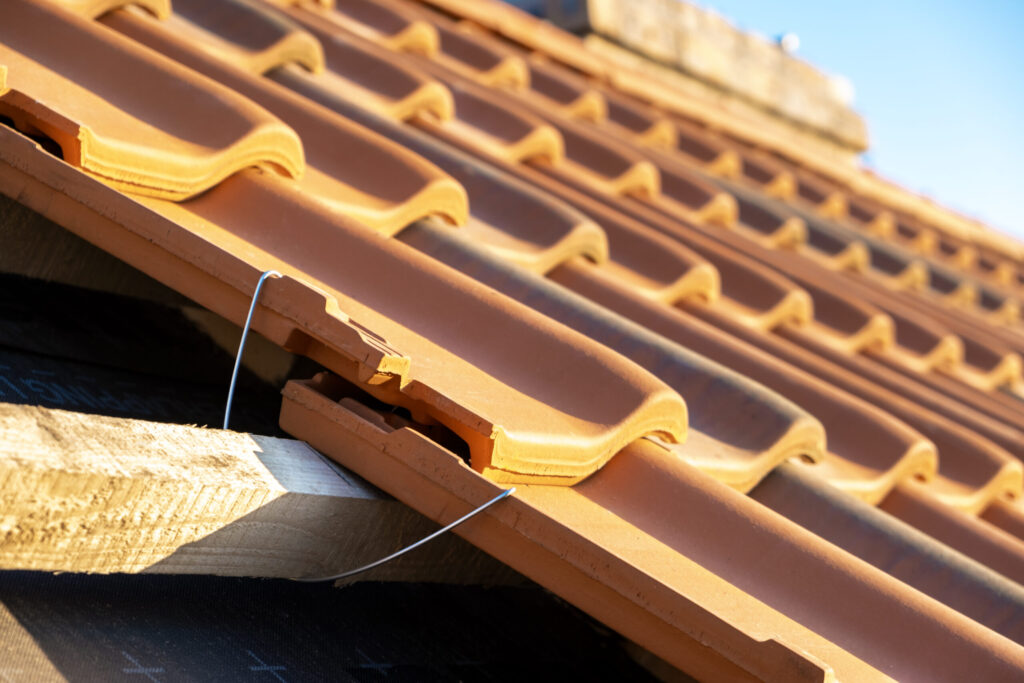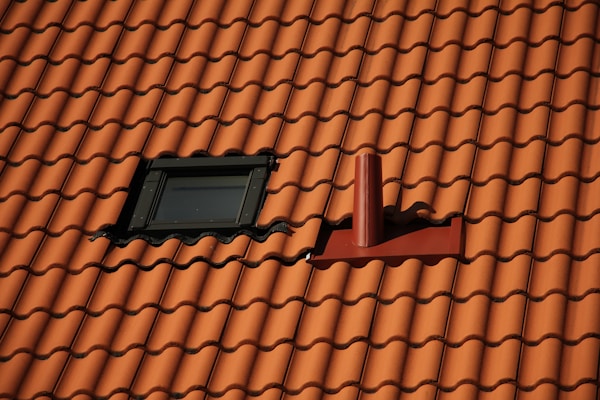
Closeup of metal montage anchor for installation of yellow ceramic roofing tiles mounted on wooden boards covering residential building roof under construction.
What To Expect When Replacing Your Roof in Virginia
Replacing your roof is a significant home improvement project that requires careful planning and execution. This is especially true in Virginia, where weather conditions and regional factors can affect the lifespan and performance of your roofing material. In this article, we will cover what to expect when replacing your roof in Virginia, from selecting the right contractor and materials to understanding the costs involved.
Choosing the Right Roofing Contractor

Finding a reliable and experienced roofing contractor is essential for a successful roof replacement project. Seek recommendations from friends, family, and neighbors who have had similar work done on their homes. Research potential contractors online, verifying their licensing and insurance status, and examining customer reviews. Don’t forget to consider the roof replacement cost Virginia specific factors, such as regional labor rates and material costs. Comparing multiple quotes will ensure you are getting a fair price for your project.
Once you have narrowed down your options, schedule consultations with a few top contenders. During these meetings, discuss your goals for the project, ask questions about their experience with local roofing codes, and request references from past clients. The right contractor should be responsive and willing to address your concerns, providing you with a detailed estimate and timeline for the completion of your roof replacement.
Selecting Your Roofing Material
When replacing your roof in Virginia, you have a variety of materials to choose from, including asphalt shingles, metal roofing, wood shakes, and synthetic materials. Each option has its own pros and cons, so consider the specific needs of your home, climate, and budget before making a decision. Asphalt shingles are the most common choice for residential roofing, as they are relatively affordable and easy to install.
Asphalt offers good durability and resistance to fire, wind, and water. However, they may not provide the same level of energy efficiency or long-term performance as other materials. Metal roofing is another popular option, known for its superior durability, energy efficiency, and low maintenance requirements. Metal roofs can be more expensive than other materials, but their long lifespan can offset the initial investment.
Preparing Your Home for Roof Replacement

Before the installation of your new roof, there are steps necessary to prepare your property. Discuss with your contractor the need for protecting landscaping, pathways, and outdoor furniture from potential damage during the construction process. Remove any valuable or fragile items from your attic, as the vibrations from the installation could dislodge items from shelves or storage areas.
Additionally, inform your neighbors about the impending work and the expected duration of the project. This will help them plan for any disruptions and minimize the impact of noise and construction traffic on their daily routines. Make sure you know and follow any community guidelines or restrictions related to construction projects in your neighborhood.
The proper disposal of old roofing materials is another major consideration. Effective waste management is needed to protect the environment and comply with local regulations. Discuss with your contractor their method for disposing of old materials and any associated costs.
Understanding the Impact of Weather Conditions

Virginia’s climate can pose challenges for roof replacement projects. Unpredictable weather patterns, including heavy rain, high winds, and winter snowfall, can affect the chosen materials’ performance and longevity. Thoroughly discuss with your contractor the best time of the year to perform the roof replacement to minimize exposure to adverse weather conditions. You don’t want to risk exposure to mold in your home due to attempting a home improvement project at the wrong time of year.
Consider incorporating energy-efficient roofing materials and insulation to maximize your home’s comfort level and reduce energy costs. In Virginia, cool roofing products that reflect the sun’s radiation can cut down on air conditioning costs during the hot summer months. Improving your attic ventilation can also reduce heat buildup and prolong the life of your new roof. Energy-efficient features can even make your home more valuable to potential buyers in the future.
As you can see, replacing your roof in Virginia involves a number of important decisions, from selecting the right contractor and materials to preparing your property and understanding the costs involved. By researching your options and working closely with a skilled professional, you can ensure that your new roof not only protects your home but meets your specific needs and budget considerations.